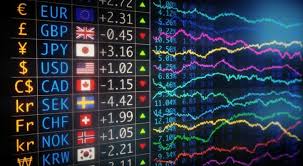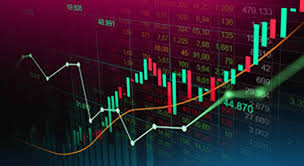
Understanding Forex Currency Trading Brokers: Your Guide
In the vast and ever-changing world of Forex trading, selecting the right forex currency trading broker protradinguae.com is crucial to your success. The Forex or foreign exchange market is the largest financial market globally, with a daily trading volume that exceeds $6 trillion. This article aims to provide insightful information about Forex currency trading brokers, their roles, and how you can choose the right one for your trading needs.
What is a Forex Broker?
A Forex broker is a financial service provider that acts as an intermediary between retail traders and the foreign exchange market. They provide a trading platform that enables individuals and institutions to buy and sell currency pairs. Brokers earn their revenue through spreads, which are the differences between buying and selling prices, or through commissions on trades.
Types of Forex Brokers
Understanding the different types of Forex brokers is vital for any trader. Here are the primary categories:
- Market Maker Brokers: These brokers create their own market for currency pairs and provide liquidity to traders by setting the prices. They often trade against their customers, which can lead to potential conflicts of interest.
- ECN Brokers: Electronic Communication Network brokers offer direct access to the interbank market, allowing traders to interact with various market participants. This setup generally provides tighter spreads and higher transparency.
- STP Brokers: Straight Through Processing brokers route orders directly to liquidity providers without any manipulation. This model can often lead to faster execution times and favorable trading conditions.

Choosing the Right Forex Broker
Selecting an appropriate Forex broker is critical for every trader, whether you are a novice or an experienced investor. Here are some essential factors to consider:
- Regulation: Ensure that the broker is regulated by a recognized financial authority. Regulatory bodies, such as the Financial Conduct Authority (FCA) in the UK or the Commodity Futures Trading Commission (CFTC) in the US, enforce strict guidelines that protect traders.
- Trading Platform: Look for brokers that offer user-friendly platforms with essential tools and features. Popular platforms like MetaTrader 4 and MetaTrader 5 are preferred for their advanced charting capabilities and flexibility.
- Spreads and Fees: Compare the spreads and commissions charged by different brokers. Some may offer low spreads but high commissions, while others might have higher spreads and low commissions.
- Customer Support: Responsive and knowledgeable customer support can make a significant difference, especially for new traders who may have questions or need assistance.
- Account Types: Brokers often provide various account types tailored to different trading styles. Make sure to choose one that aligns with your trading strategy and financial goals.
Understanding Forex Spreads
In Forex trading, the spread is the difference between the bid and ask price of a currency pair. It’s essential to understand how spreads work because they directly impact your profitability. There are two main types of spreads:
- Fixed Spreads: These spreads remain constant regardless of market conditions and provide predictability for traders.
- Variable Spreads: These spreads fluctuate with market volatility, as they often widen during times of high activity and narrow during periods of low activity.
The Importance of Leverage
Leverage is a critical feature offered by Forex brokers that allows traders to control larger positions with a relatively small amount of capital. For example, a leverage ratio of 100:1 means that for every $1 in your account, you can trade up to $100. While leverage can amplify gains, it can also increase losses, making it crucial for traders to use it wisely and manage their risk effectively.

Risk Management in Forex Trading
Forex trading can be highly rewarding, but it also comes with significant risks. Implementing a robust risk management strategy is paramount to safeguarding your capital and ensuring long-term success. Here are some tips for effective risk management:
- Set Stop-Loss Orders: Utilize stop-loss orders to limit potential losses on trades. This ensures that you exit a trade when it reaches a predetermined level.
- Risk Only What You Can Afford to Lose: Never invest more money than you can afford to lose. This helps you stay calm in volatile market conditions.
- Diversify Your Portfolio: Don’t put all your eggs in one basket. Diversifying your trades across multiple currency pairs can help reduce risk.
- Use Position Sizing: Determine the appropriate position size based on your account balance and risk tolerance. This prevents oversized trades that can lead to substantial losses.
Educating Yourself in Forex Trading
The Forex market is dynamic and constantly evolving. Continuous education is vital for traders who wish to stay ahead. Here are a few resources and methods to enhance your trading knowledge:
- Online Courses: Many platforms offer educational courses tailored for Forex trading, covering topics from the basics to advanced strategies.
- Webinars: Live webinars hosted by experienced traders can provide valuable insights and strategies.
- Trading Forums: Engaging with other traders through forums can help you exchange ideas and learn from shared experiences.
- Demo Accounts: Many brokers provide demo accounts that allow you to practice trading with virtual money before risking real capital.
Conclusion
Choosing the right Forex currency trading broker is a foundational step in your trading journey. With countless options available, ensure you take the time to research and evaluate various brokers to find one that aligns with your trading strategy and goals. Ultimately, your success in Forex trading will depend not only on the broker you choose but also on your commitment to learning and implementing effective trading strategies.

